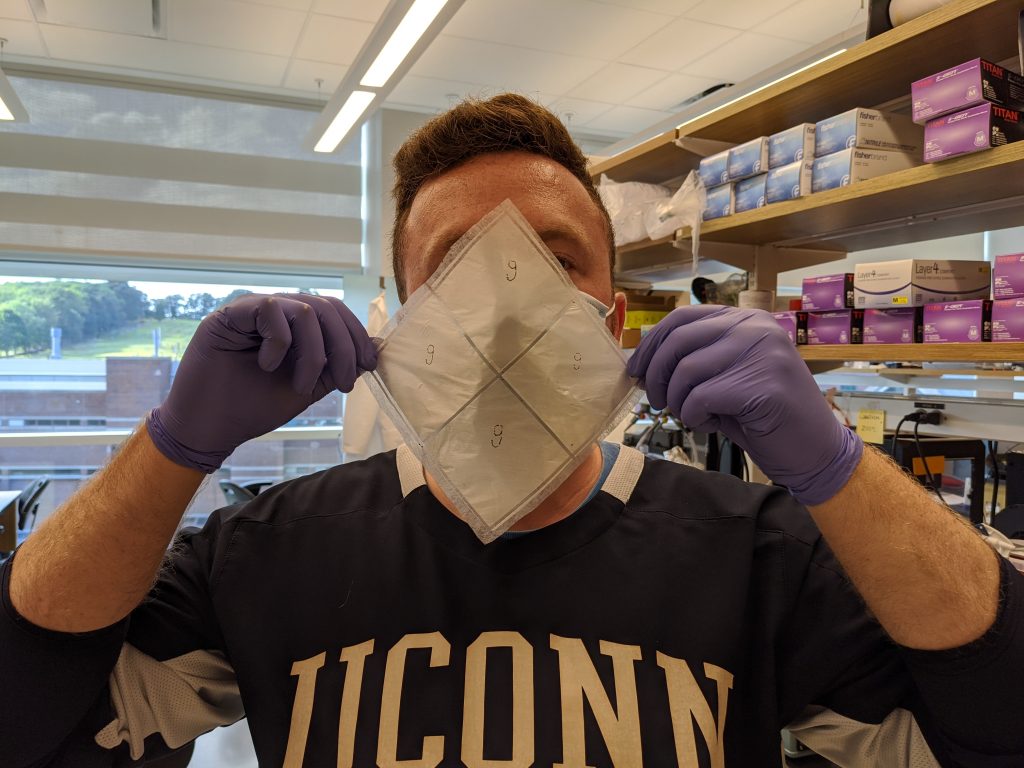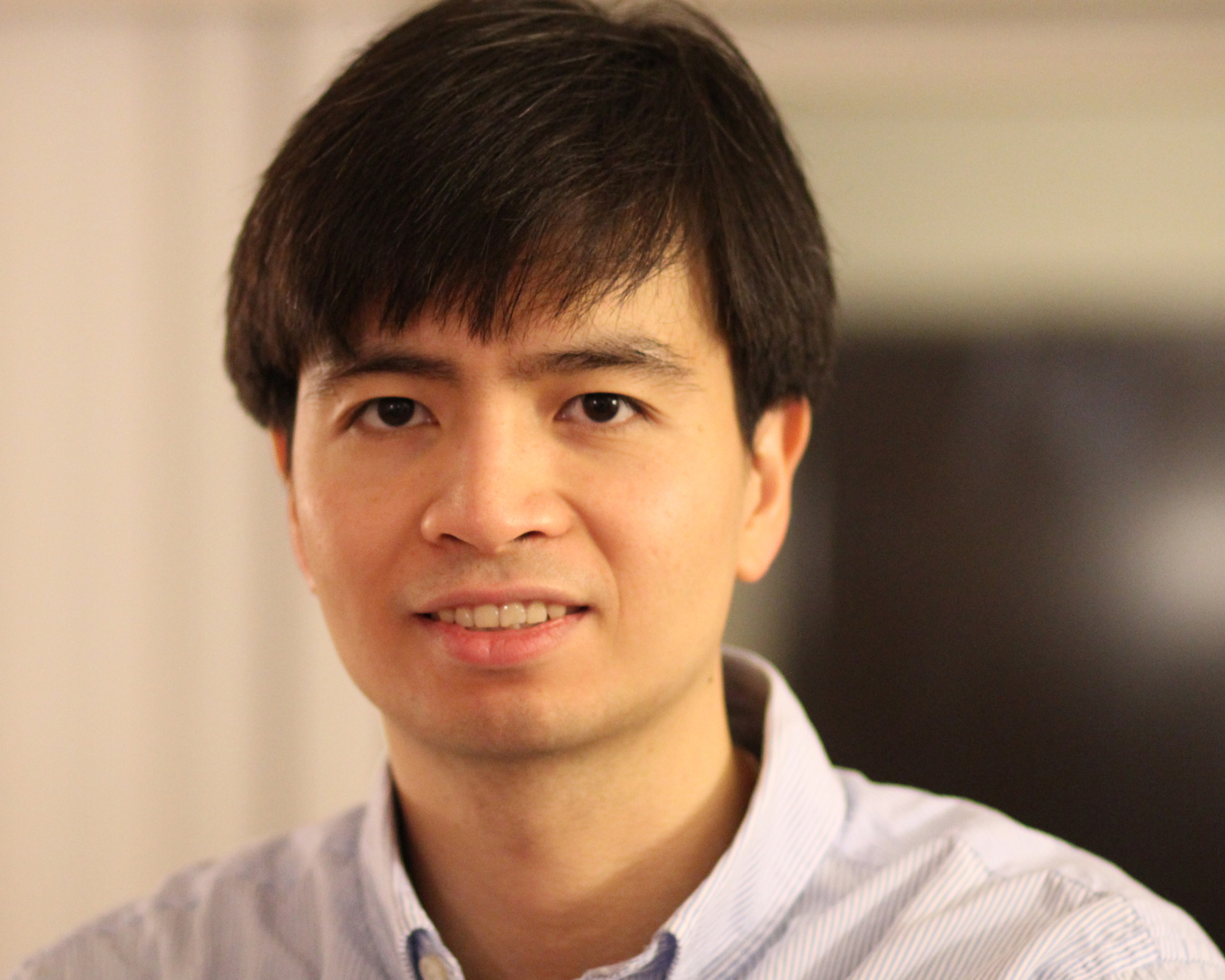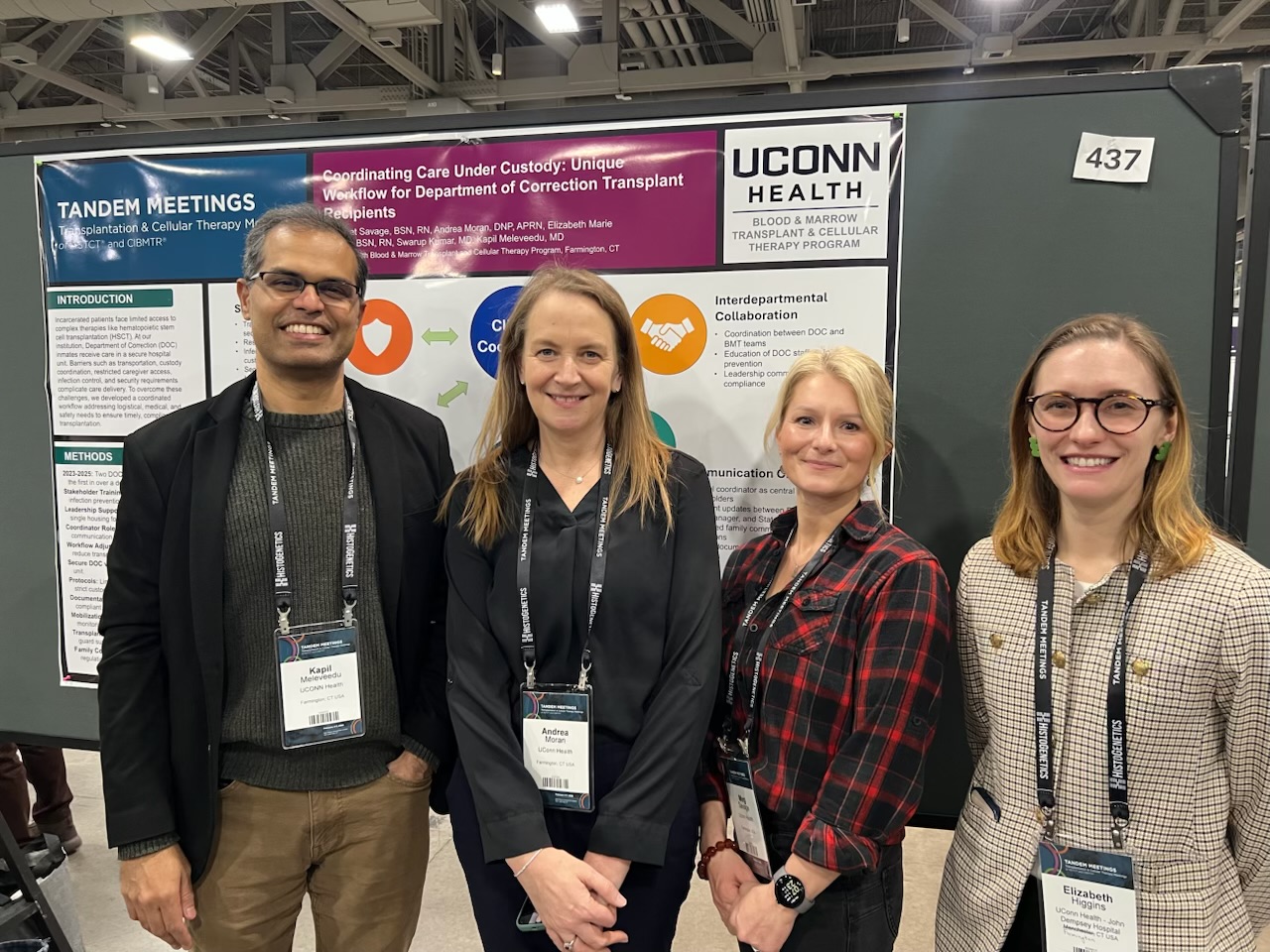Facemasks have become a ubiquitous necessity as one of the best ways to prevent the spread of COVID-19.
The pandemic has dramatically increased demand for masks and created an environmental problem. Many people do not dispose of their masks properly, leaving them littering the ground where they can seriously harm wildlife as they pollute the land and seas.

UConn assistant professor of mechanical engineering Thanh Nguyen, along with Ph.D. students Eli Curry, Thinh Le, and Tra Nguyen, have filed a patent application for a biodegradable, reusable mask to address these concerns.
Most masks are made of polypropylene, a non-biodegradable compound. Since these masks are usually only used once, they are soon thrown into landfills, where they will take years to decompose or end up in the ocean.
Nguyen’s mask resembles the familiar blue surgical masks, but has several key advantages. This innovation is believed to be the first reusable, biodegradable surgical mask.
Nguyen’s invention uses piezoelectric electrospun nanofibers. Piezoelectricity, literally “pressure-induced electricity,” is the electric charge that accumulates in certain solid objects in response to mechanical stress. Certain smart materials can convert mechanical force into electric charge without the application of external voltage.
Traditional masks use the inherent surface charge of their filtering material to attract and trap droplets which can spread airborne pathogens. Harnessing the power of the piezoelectric phenomenon makes the mask a more effective filtration device.
Nguyen has demonstrated his mask is more effective than non-medical masks, and nearly as effective as N95 masks under both normal and exerted breathing rates for trapping efficiency.
The masks can be disinfected using common decontamination processes and reused several times.
While the integrity of the material will eventually degrade, when the mask is disposed of, it will biodegrade without harming the environment.
Nguyen hopes to develop this mask for commercialization with industry partners so that it may be available to the market.
This invention addresses both concerns over mask shortages and the environmental impact of disposable masks.
Nguyen is also a faculty member in the Department of Biomedical Engineering. The Biomedical Engineering Department is a joint department of UConn Storrs and UConn Health. It includes the UConn School of Engineering at Storrs and the School of Dental Medicine and School of Medicine in Farmington.
For more information about this technology and opportunities for collaboration, contact UConn licensing director, Lindsay Sanford (techcomm@uconn.edu).



